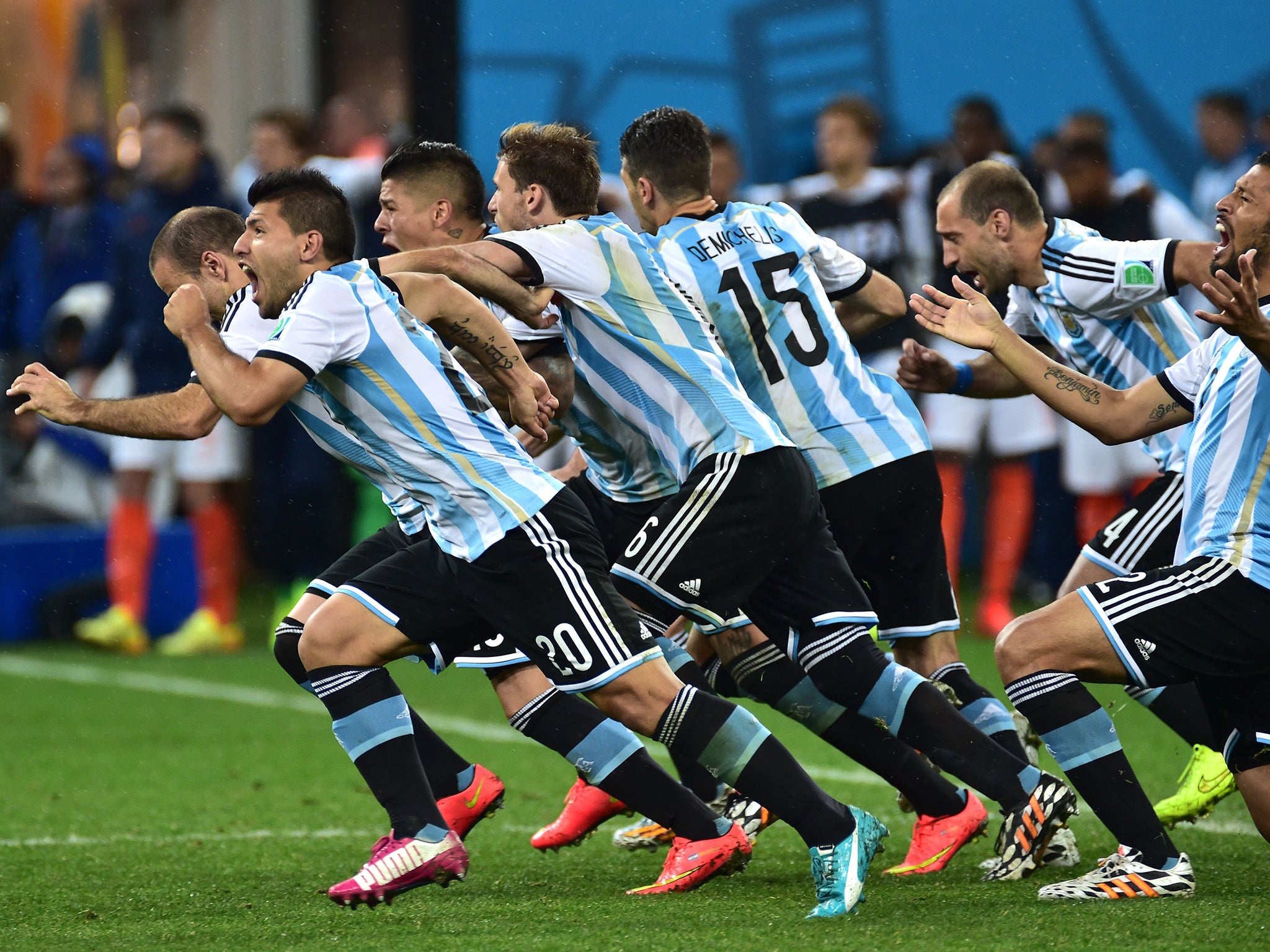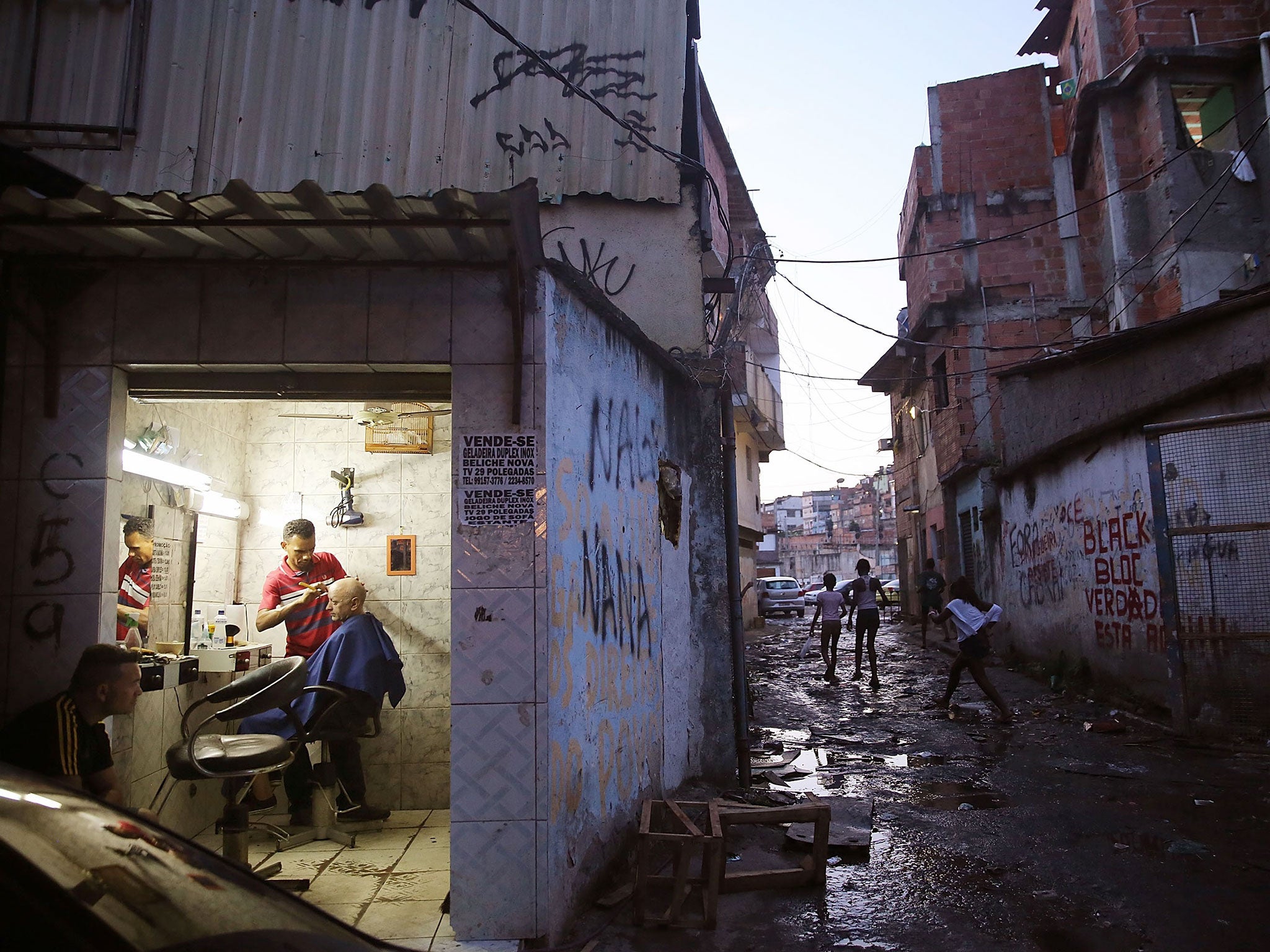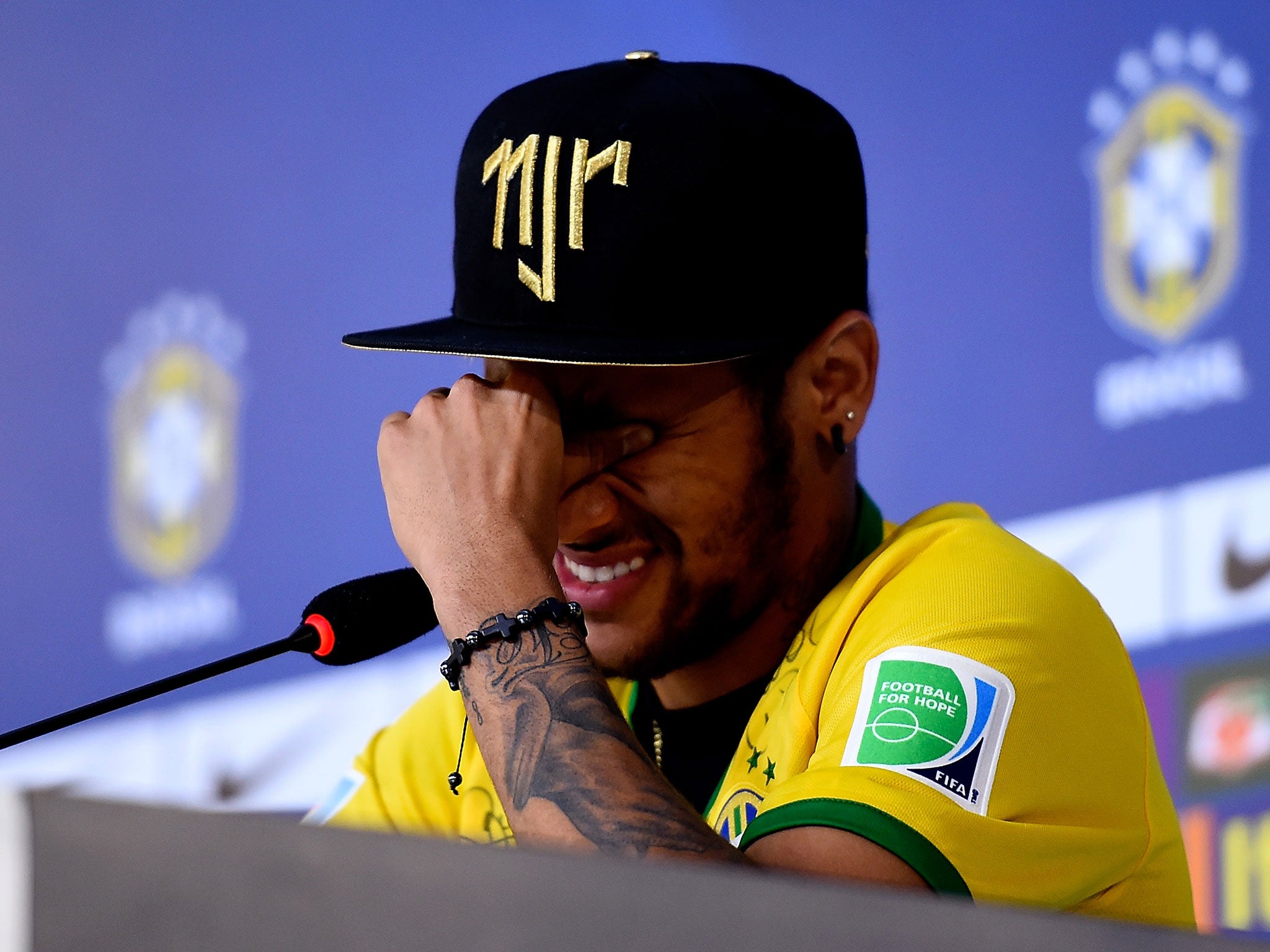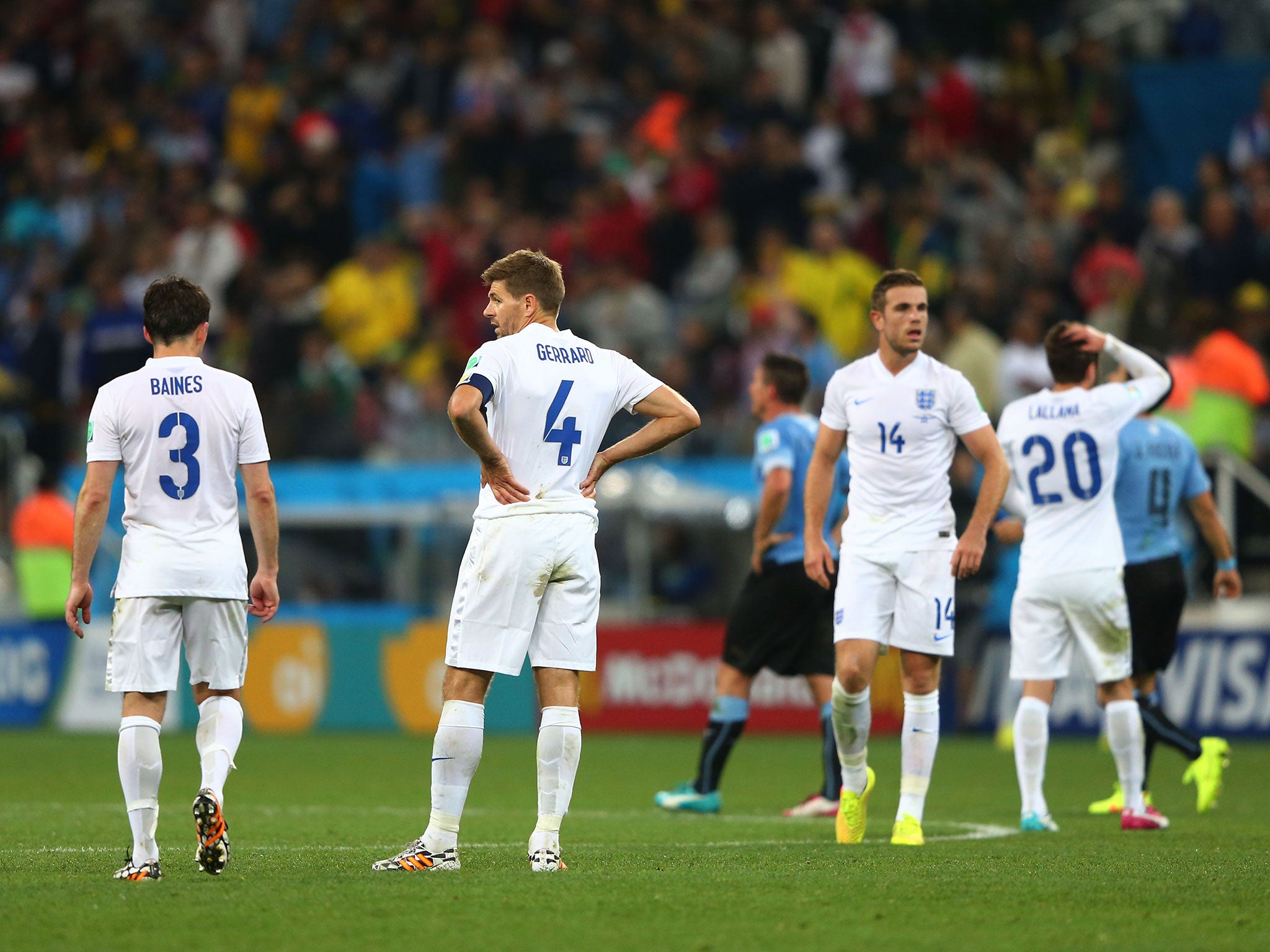Germany vs Argentina World Cup 2014: A cup of shocks, shame and lots to acclaim
Sunday's final is a fitting climax to a month that has captivated the globe

Your support helps us to tell the story
From reproductive rights to climate change to Big Tech, The Independent is on the ground when the story is developing. Whether it's investigating the financials of Elon Musk's pro-Trump PAC or producing our latest documentary, 'The A Word', which shines a light on the American women fighting for reproductive rights, we know how important it is to parse out the facts from the messaging.
At such a critical moment in US history, we need reporters on the ground. Your donation allows us to keep sending journalists to speak to both sides of the story.
The Independent is trusted by Americans across the entire political spectrum. And unlike many other quality news outlets, we choose not to lock Americans out of our reporting and analysis with paywalls. We believe quality journalism should be available to everyone, paid for by those who can afford it.
Your support makes all the difference.For a time there seemed to be revolution in the air in Brazil this heady World Cup month. Not on the streets, where suffocating policing, home-nation progress and a desire to put on a show meant there was no repeat of the mass protests of last summer’s Confederations Cup, but on the pitch.
Amid steaming heat, game after game was thrilling and open. The holders Spain began with a 5-1 drubbing en route to being swiftly dethroned. Two other former kings were bundled out too, as was the reigning World Player of the Year, a lame Cristiano Ronaldo no match for the endless running and can-do enthusiasm of Jürgen Klinsmann and his Americans. With Colombia, Chile and Costa Rica shining, the possibilities seemed endless.
However, as with most revolutions, in the final analysis the new order turned out to look much like the ancien regime. The final is the third such meeting between Argentina and Germany/West Germany. The semi-final quartet had collectively won 10 World Cups and made it to 21 finals.
And yet, even before Germany played like Brazil in 1982, and Brazil like Zaire in 1974, this was a World Cup that did confound expectations.
As hosts, if not performers, Brazil defied forecasts of doom and staged a tournament that worked. There have been occasional tales of ticket problems, some travel delays, and more rain than most visitors expected, but the infrastructure coped. Crime appears to have been light – at least in the areas World Cup officials and tourists go – and though a bridge tragically collapsed in Belo Horizonte, none of the stadia fell down.
Not that all has been plain sailing. The glaring absence of black faces at matches has been noted, with ticket prices effecting a form of economic apartheid. Reservations over the financial and social cost of staging the finals have not been abated. Indeed, for many western observers there was an obscene contrast between the grandiose stadia, some of which are already white elephants, and the grim struggle of many people’s daily lives.
If any good comes of the tournament in that respect, it is that the global exposure of favela residents’ desperate circumstances may belatedly shame the authorities into redemptive action. Ian Herbert’s report in these pages of the death toll related to something as basic as the failure of state-owned companies to hook up communities to legitimate power sources ought to have been a sobering read for those responsible. If, when the Olympics come to Rio in two years, the same articles need writing, the Brazilian government will have failed their people – again.

In the great old tradition of “bread and circuses” dating back to Roman times, President Dilma Rousseff will have this year hoped for a sixth World Cup triumph to distract the impoverished masses. For a while it seemed her prayers could be answered but the Selecao’s disintegration in the Estadio Mineirao put the focus back on to Brazilian failings.
It is not just socio-economics under the microscope. In a refrain familiar to English ears, some pundits, including ex-player Juninho, saw a silver lining in the 7-1: now, they said, Brazilian football must conduct much-needed root-and-branch reform.
There is not space here to go into the problems of the Brazilian game, but one aspect is relevant. This tournament has confirmed the sorry reality that the jogo bonito now exists only as a marketing concept. Luiz Felipe Scolari’s Brazil betrayed their heritage. Not only were they over-reliant on Neymar (below) for inspiration (even Oscar seemed reduced to the role of water-carrier), their cynical attempt to stop James Rodriguez playing was shaming. What does it say when Brazil fear being outplayed at home by Colombia?
Sadly it was Neymar who paid the high price when Colombia responded in kind and he suffered one of the worst injuries of the finals. Responsibility for this, and Rodriguez’s treatment, must ultimately be laid at Fifa’s door, for it was they who instructed referees to take a laissez-faire approach to fouls. There are wrong priorities when Luis Suarez is banned for four months from all football activity, and slapped with a nine-match suspension, for a bite that did not cause injury, yet reckless tacklers who endanger players’ careers get one-match bans. Red and yellow cards are at their lowest level since the 1986 finals and it is the entertainers who have suffered.

Not that this had any relevance to the holders’ exit. That Spain were jaded was clear before the finals but, despite the clues provided by the Champions League failure of Barcelona and Pep Guardiola’s Bayern Munich, no one expected that their brand of possession football would be so thoroughly swept aside. It was not just Spain. In game after game possession percentages proved football statistics are meaningless without context.
Brazil 2014 will be remembered for fast-paced matches – despite a stifling climate at many games – often with teams pressing high, for superb close control and quick passing. Germany, Chile and Colombia have been the best exponents, with the Netherlands, Costa Rica and Mexico very good tactically. France shone briefly while the US showed that effort and desire can take a team a long way.
It was a decent tournament for teams from the Concacaf region but a relative geographical familiarity, and the fact their star players were often goalkeepers, suggests this will not necessarily come to be regarded as a breakthrough tournament.
Asia’s campaign was disastrous. The region provides 60 per cent of the world’s population and key Fifa sponsors, but South Korea, Japan, Iran and Australia collectively lost nine games, drew three and won none.
Africa could point to second-round qualifiers in Nigeria and Algeria but in truth it was a poor tournament for the continent, with the turmoil surrounding Ghana and Cameroon reviving all the old cliches about African football. In many countries, administrative reform is desperately overdue.
The same can be said of Fifa who began the tournament under fire but must have thought they had escaped once the attention turned to the matches. Then came this week’s twist in the tale when the local police decided to look into ticket re-selling. We wait to see what happens, but the Brazilian authorities may have over-turned a very large stone.
England, as usual, looked short of quality and depth. With better fortune they might have qualified for the knockout stages, but it would only have delayed the inevitable. Defensive players continue to look very uncomfortable in possession, midfielders lack game intelligence, and while there is potential in the forwards, there are no guarantees it will be realised.

Wayne Rooney at last scored in a World Cup, and is up with the nation’s current best, but to watch the likes of Lionel Messi, Rodriguez, Arjen Robben, Toni Kroos, Bastian Schweinsteiger, Philipp Lahm and others is to realise what “world class” really means.
It is no coincidence that many of these players are German, or that Joachim Löw’s team are in the final against Argentina. This is a country in which the club and international game work together, not with distinct agendas. It can be done.
As a result we have a final that pits the best team against the best player in a clash of continents and styles. It is a fitting climax to a month that has captivated the globe and proven the World Cup remains the game’s grandest stage.
Join our commenting forum
Join thought-provoking conversations, follow other Independent readers and see their replies
Comments